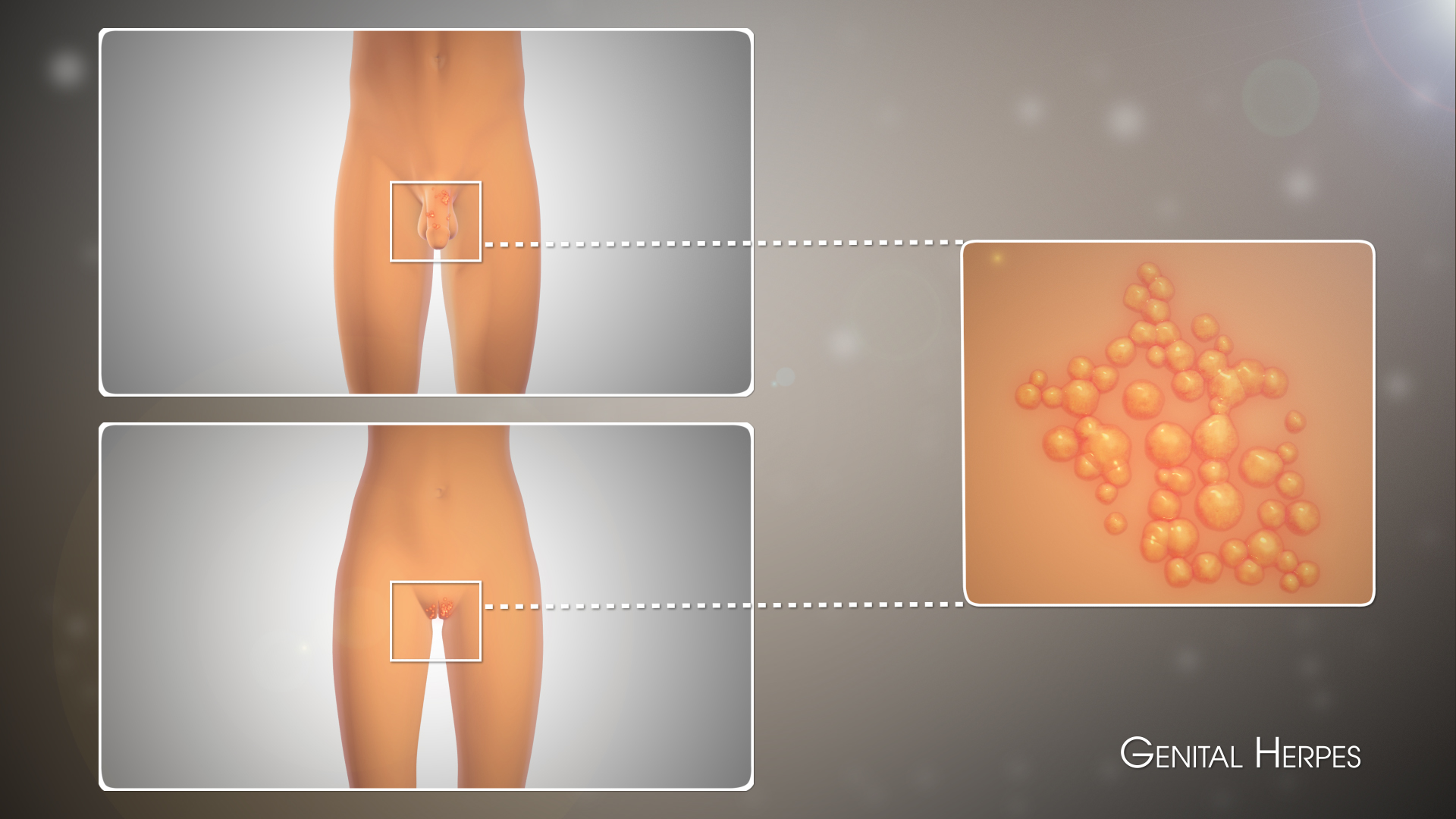Genital herpes is a sexually transmitted disease caused by the herpes simplex virus (HSV). It is a common disease that primarily spreads through sexual contact. Once a person gets infected with this virus, the virus remains dormant in the body but it can reactivate several times. Unfortunately, there is no cure, but with medications, the symptoms can be alleviated and the risk of transmitting it to others can be reduced. Genital herpes is so common in the U.S. that more than 1 out of every 6 people aged 14 to 49 years have it.

Symptoms
Many people infected with HSV are not aware that they have genital herpes because they do not have any symptoms or the symptoms are very mild and they may not appear for a few months or even a few years after getting infected. But in some people, signs and symptoms may appear after 2 to 12 days of getting exposed to the virus. When symptoms appear soon after getting infected, they are very severe as compared to recurrences. These symptoms include:
- Aches, pains, and flu-like symptoms
- Small blisters that burst to leave red, open sores around the genitals, buttocks, anus, and thighs
- Blisters and ulcers in the cervix in women
- Blisters and ulcers on the penis and scrotum in men
- Vaginal discharge in women
- Pain and itching in the genital area
- Ulcers when the blisters rupture
- Scabs when ulcers start to heal
- Painful urination
- Swollen lymph glands
The appearance of blisters is called an outbreak and is usually the first symptom of genital herpes. The symptoms may clear up in around 3 weeks. Recurrent outbreaks are usually shorter and less severe.
Causes
Genital herpes is caused by two types of viruses, HSV-1 and HSV-2. The viruses enter the body through the mucous membranes. Once the viruses enter the body they remain in the nerve cells of the pelvis. They adapt to the environment in the body and multiply. HSV-1 and HSV-2 are present in the saliva, semen, and vaginal secretions of an infected person. Even if a person does not have any symptoms, he or she may pass the virus on to other people. Unprotected vaginal, anal, and oral sex are the most common ways of getting infected. If a pregnant woman has genital herpes, it is most likely to be passed on to the unborn baby.
Treatment
The goal of treatment in genital herpes is to reduce the outbreaks and give relief from the symptoms. However, it cannot be cured because the virus that causes this condition lies dormant in the body and can reactivate several times. Antiviral medications are prescribed which include Acyclovir (Zovirax) and Valacyclovir (Valtrex). These medicines help in:
- Reducing the frequency of recurrence
- Help the sores to heal sooner
- Lessen the duration and the severity of symptoms
- Minimize the chances of transmitting the herpes virus to another person
One should avoid sex during an outbreak because then the chances of passing on the virus to another person are the highest. Genital herpes increases the risk of one getting HIV.
Disclaimer: The information in no way constitutes, or should be construed as medical advice. Nor is the above article an endorsement of any research findings discussed in the article an endorsement for any of the source publications.








